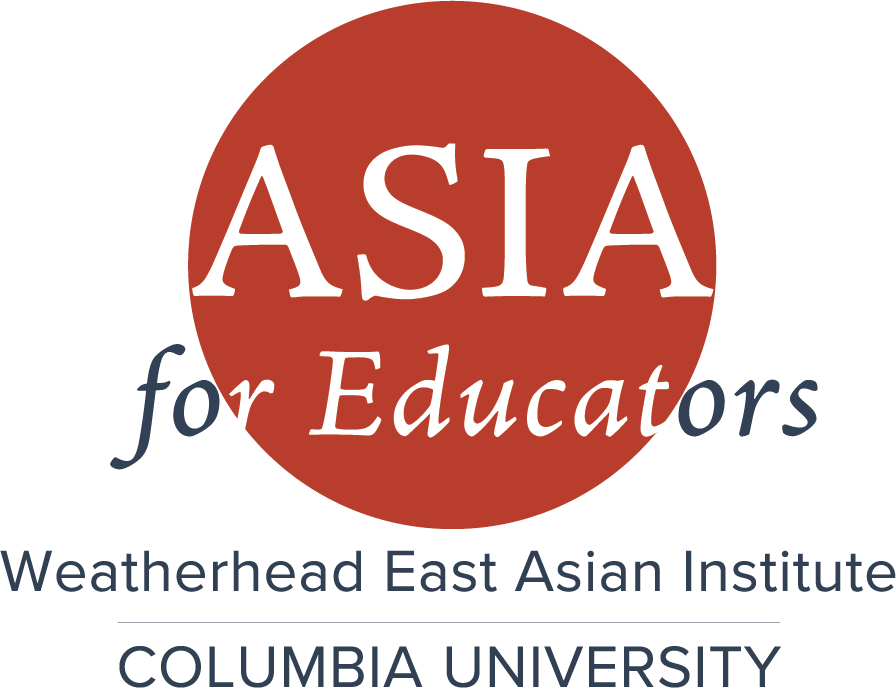Asia and the Paris Peace Conference Ending WWI – Teaching Guide
Vocabulary of Note
- “Fourteen Points” – principles proposed by Wilson as a basis for peace after WW I – text at [07:15]
- Self-determination – the right of countries to determine their own future
Names of Note
- Versailles (ver-sigh) – town outside of Paris where Louis XIV built a royal palace. The long “Hall of Mirrors” inside is the site of important state dinners and meetings, and was the site of the Paris Peace Conference negotiations.
- Woodrow Wilson – President of the United States, 1913–1921
- Lenin (Vladimir Lenin)—founding head of the Soviet government, 1917–1924, at the time of the Russian Revolution that began in 1917 and overthrew the imperial government under the Tsar (Zar)
Outline of Presentation – with [Timecode]
Video 1
The Paris Peace Conference took place in 1919 at the end of WW I in Europe [01:22]
- We all know about the repercussions of the Paris Peace Conference and the Treaty of Versailles that followed WW I, “the Great War,” the “War to End all Wars,” and its failure to do so.
- But what does the Paris Peace Conference have to do with Asia?
- Necessary to think of the Paris Peace Conference as a global event and an Asian event as well
Reason it was called a “world” war [02:30]
- Colonial manpower crucial to the European forces
- China sent 140,000 men to France to help in all aspects of war production
- Colonies and semi-colonies had hopes for recognition and national independence after this contribution
- The Paris Peace Conference was of global significance, especially for the peoples of the colonized world
U.S. President Woodrow Wilson’s “14 Points” that mention “the Principle of Self-Determination” is the source of this hope among colonized people [05:40]
- Wilson did not invent the term; Lenin published on “The Right of Nations to Self-Determination” in 1914, but his meaning was that of socialism and anti-imperialism
- Text of the 14 Points [07:15]
- socialists meant it as an anti-imperialist, anti-colonial statement
- Wilson turned it into a European term involved with breaking up European empires
How could he have meant “self-determination” for the Philippines, an American colony since 1898? [11:00]
- Seen by cartoonists as “the stepping stone to China” (scroll to the 2nd cartoon)
Outcomes of the Conference
- First outcomes – practical [12:37]:
- China sees the German rights in the Shandong peninsula turned over to Japan, not returned to China
- Korea, which had hoped to be free of Japanese colonial rule, is not
- Hope felt in the first six months turns to despair
- Second important outcome [14:30]:
- disillusionment with Western ideals and liberal democracy
Alternative seen in the Bolshevik Revolution in Russia in 1917–18 – espousing liberation from imperialism [15:34]
Synchronicity of the Paris Peace Conference and the formation of the “Communist International,” the Comintern, in Moscow in 1919 – advocating world communism and sending agents to assist other countries overthrow imperialism [16:00]
- Chinese Communist Party (CCP) formed in Shanghai in 1921
Impact on Vietnam [16:30]:
- Vietnamese cook in Paris in 1919 writes a letter to Woodrow Wilson on behalf of the Vietnamese people, a colony of France at the time. Wilson does not reply or possibly ever read.
- Cook becomes a socialist and returns to Vietnam to lead the revolution; Ho Chi-min
Summary [19:00]
Video 2 – Paris Peace Treaty Extra duration 2 min
What about Japan after the Versailles Treaty?
- Japanese had been “respected” by the American and European powers after Japan’s defeat of the Russians, a Western nation, in the 1904–05 Russo-Japanese War
- Japan was attempting to join the world order of the late 1800s, a world order of Imperialism
- 1894–5 fights China for control of Taiwan and Korea
- 1910, annexes Korea outright
- Japanese win the former German rights in Shandong province, China at the Paris Peace Conference
- but they feel “excluded” by the Western powers; Racism clearly a factor
- Japan determines that they must expand their imperialist foothold in East and SE Asia, establishing themselves as an equal to the other powers in international system of the day
- Japan saw its role as becoming a new leader in Asia; “Asia for the Asians” was eventually its rationale
- 1931 invades Manchuria, establishing a puppet state, “Manchukuo”
- 1937 invades and occupies all of China
